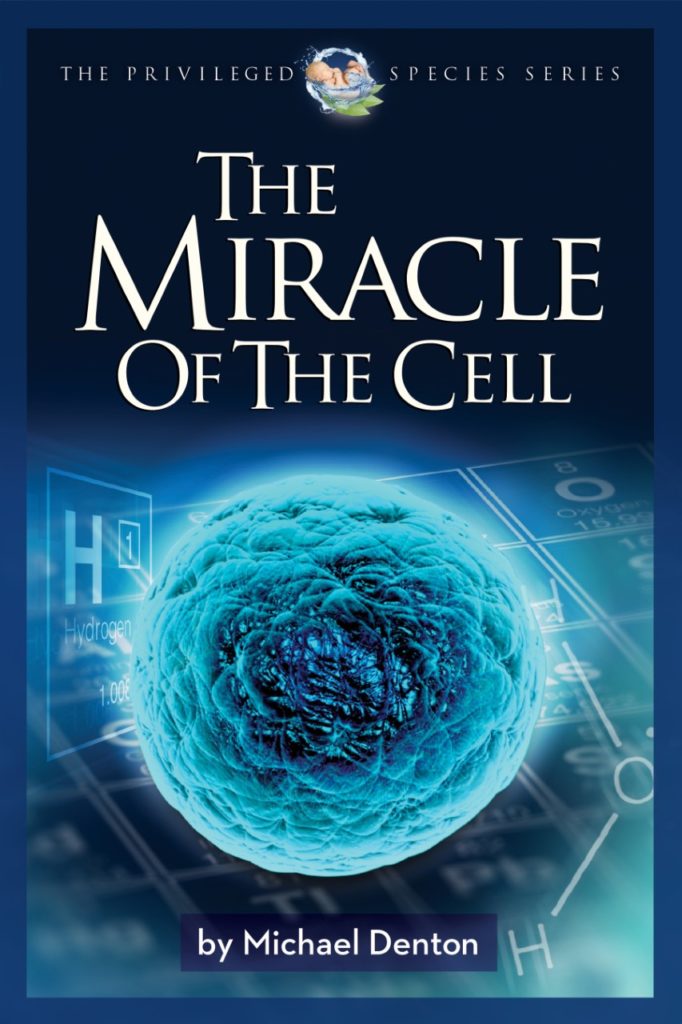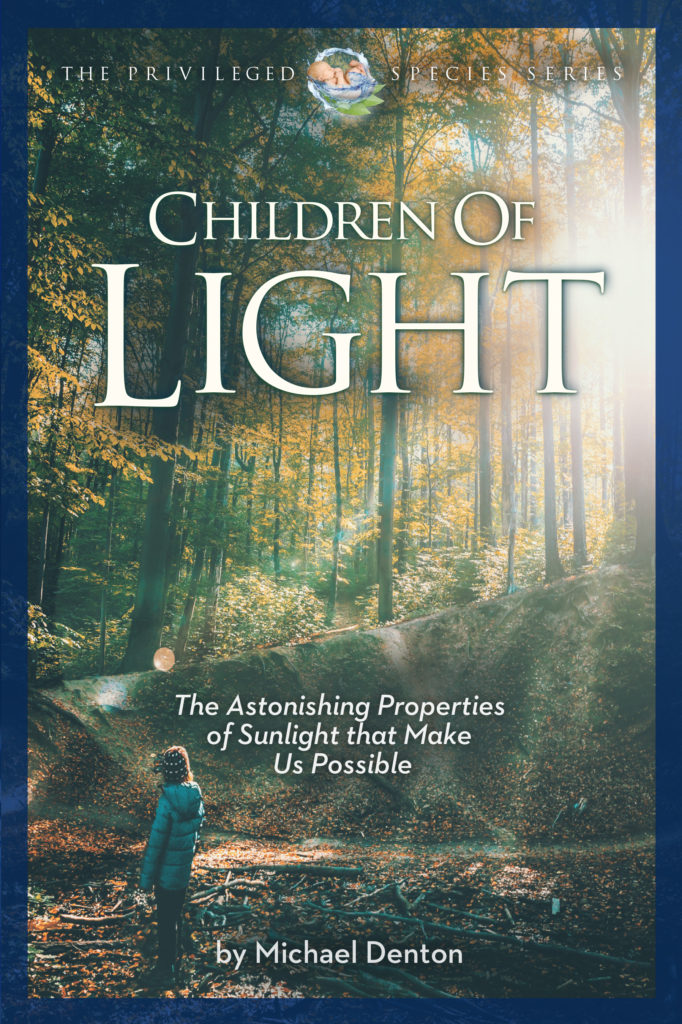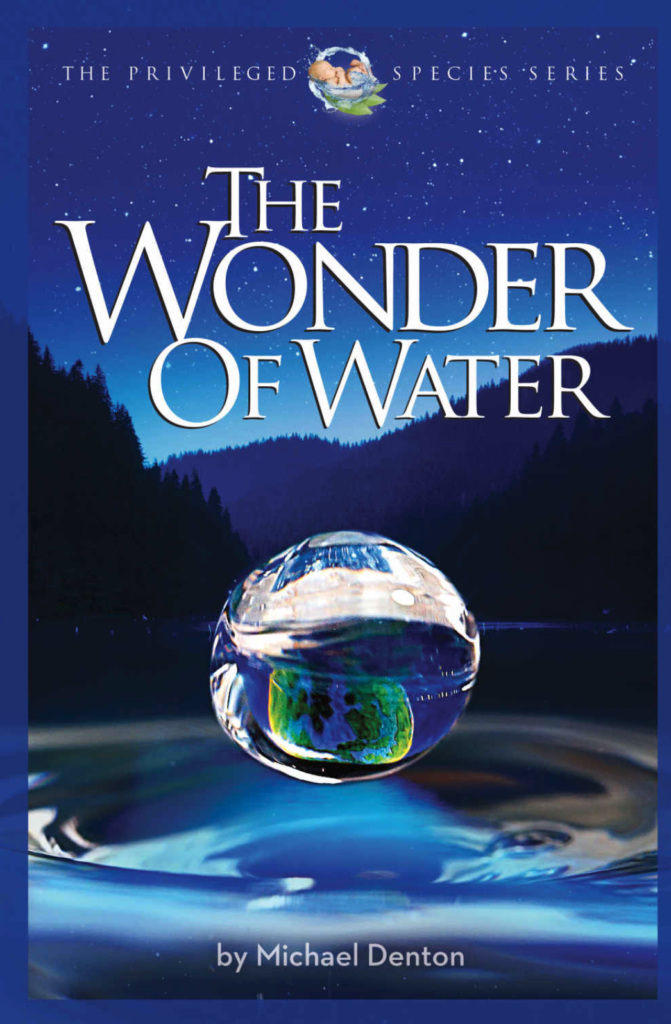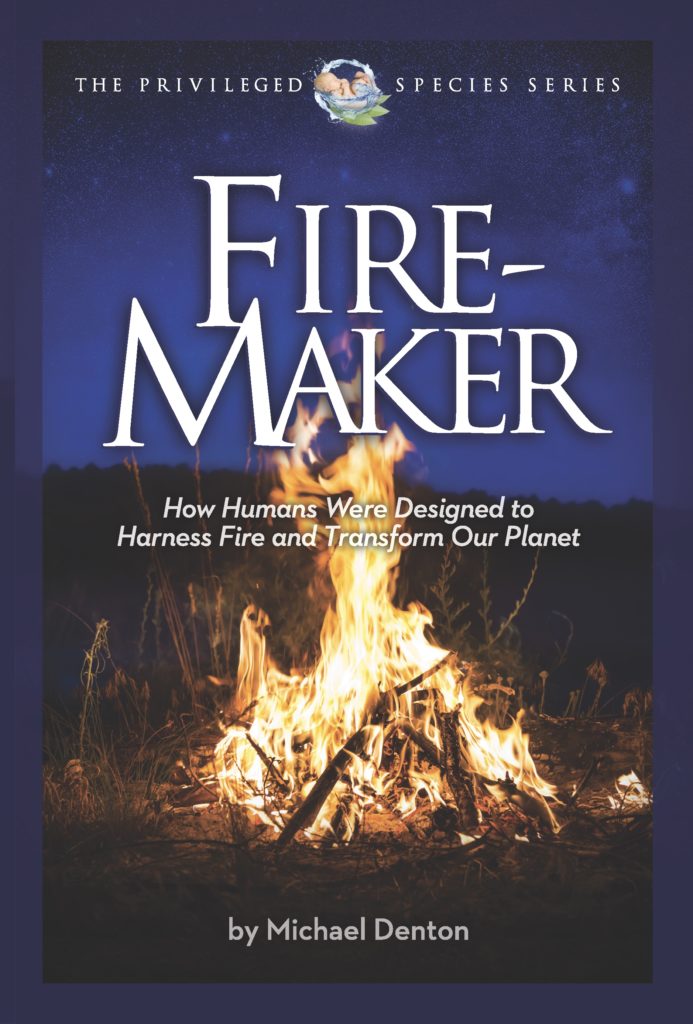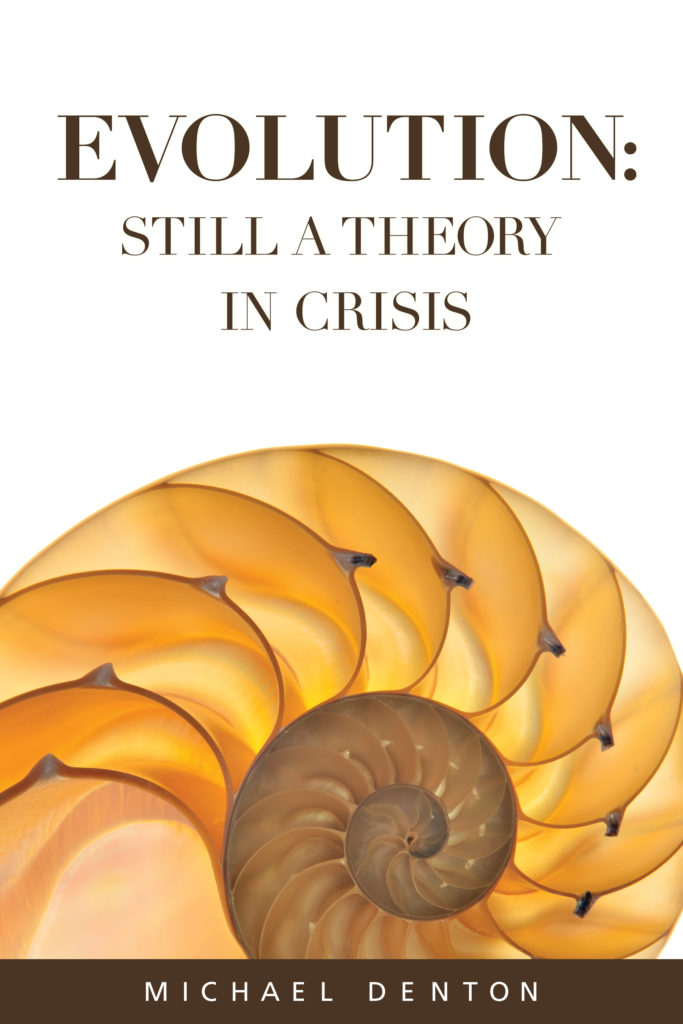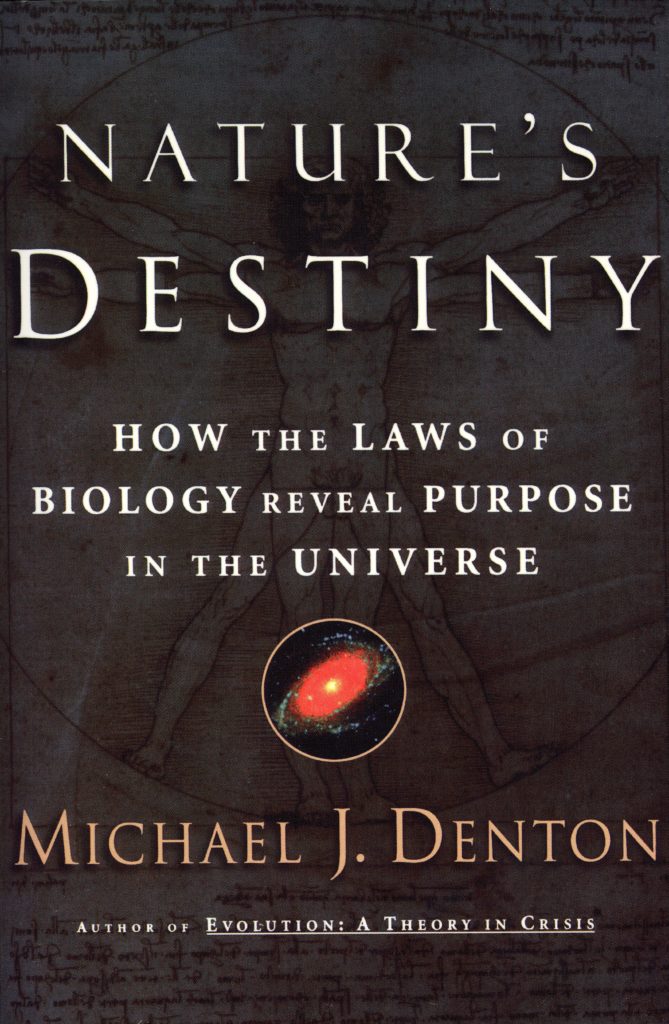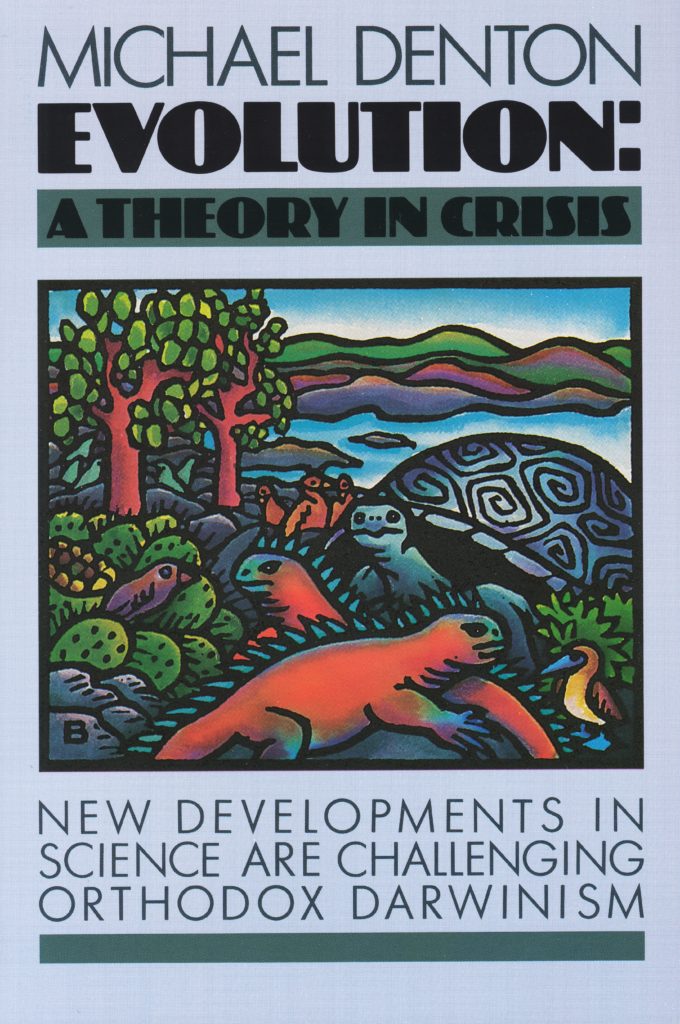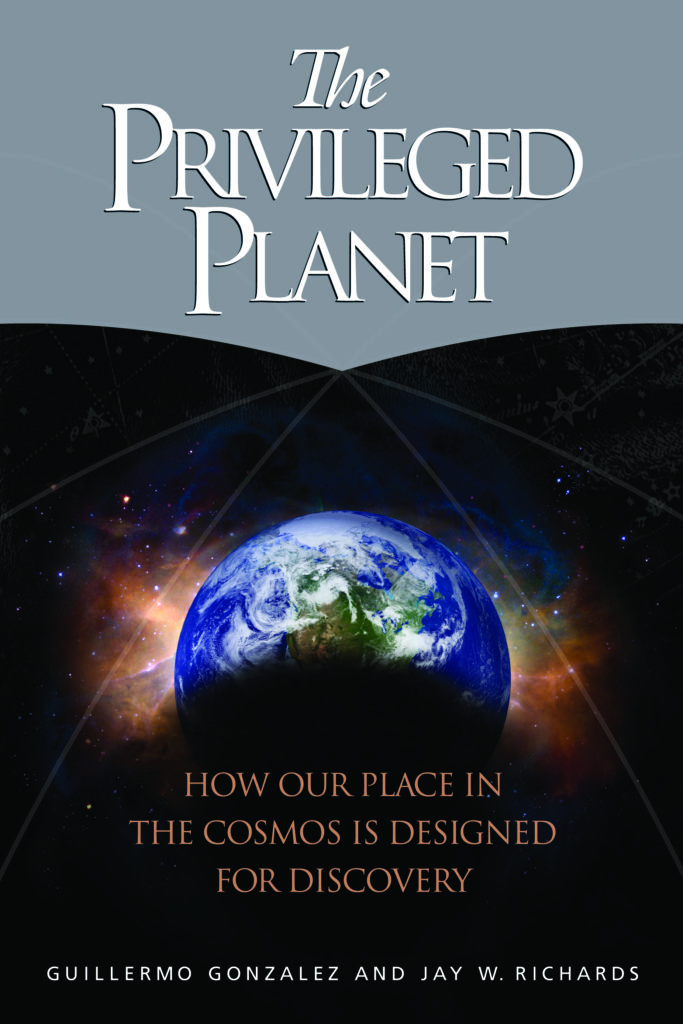Books by Michael Denton and Others
Books by Michael Denton
For years, leading scientists and science popularizers have insisted humans are nothing special in the cosmic scheme of things. In this important and provocative new book The Miracle of Man, renowned biologist Michael Denton argues otherwise. According to Denton, the cosmos is stunningly fit not just for cellular life, not just for carbon-based animal life, and not even just for air-breathing animals, but especially for bipedal, land-roving, technology-pursuing creatures of our general physiological design. In short, the cosmos is specifically fit for creatures like us. Drawing on discoveries from a myriad of scientific fields, Denton masterfully documents how contemporary science has revived humanity’s special place in nature. “The human person as revealed by modern science is no contingent assemblage of elements, an irrelevant afterthought of cosmic evolution,” Denton writes. “Rather, our destiny was inscribed in the light of stars and the properties of atoms since the beginning. Now we know that all nature sings the song of man. Our seeming exile from nature is over. We now know what the medieval scholars only believed, that the underlying rationality of nature is indeed ‘manifest in human flesh.’ And with this revelation the… delusion of humankind’s irrelevance on the cosmic stage has been revoked.”
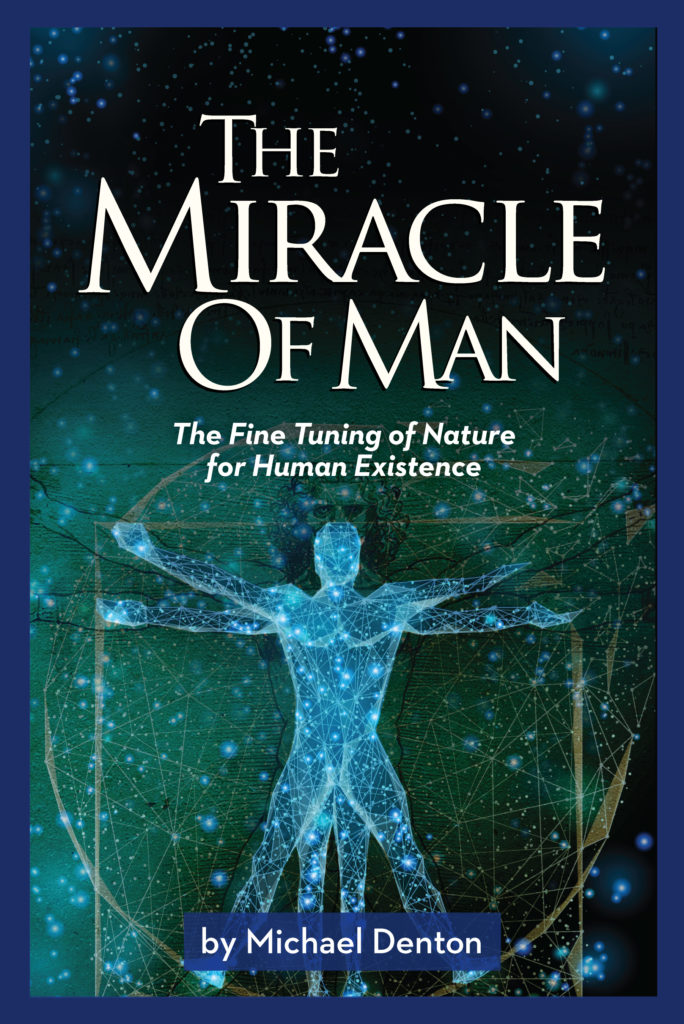
In The Miracle of the Cell, Michael Denton provides compelling evidence that long before life emerged on our planet, the design of the carbon-based cell was foreshadowed in the order of nature, in the exquisite fitness of the laws of nature for this foundational unit of all life on Earth. Nowhere is this fitness more apparent than in the properties of the key atomic constituents of the cell. Each of the atoms of life—including carbon, hydrogen, oxygen, and nitrogen, as well as several metal elements—features a suite of unique properties fine-tuned to serve highly specific, indispensable roles in the cell. Moreover, some of these properties are specifically fit for essential roles in the cells of advanced aerobic organisms like ourselves.
In Children of Light, Michael Denton elucidates the miraculous convergence of properties on the tiny band of the electromagnetic spectrum that allows intelligent life to flourish on Earth. Follow the fascinating journey of light as it beams down from our Sun, through the protective blanket of our atmosphere, to the Earth, where it powers photosynthesis and unlocks the oxygen needed for life. Learn how visual light allows the high-acuity vision that led us to civilization and technology. Explore how light is part of the epic story of our fine-tuned universe, fit for us to flourish here and come to understand it.
In The Wonder of Water (2017), biologist Michael Denton delves deep into a grand, untold story, exploring how water is specially equipped to allow life to flourish on our blue planet. From roaring waterfalls and crashing waves to gentle rain and billowing clouds, water pervades our planet’s majestic biosphere. It is easy to take for granted. But this ever-present substance is amazingly fit in a myriad of ways to sustain life on Earth, especially human life. Its unique properties allow it to fill many roles throughout the biological world, from forming the matrix of our cells, to regulating the temperature of our planet.
Fire-Maker (2016) hones in on one particular aspect of our planet’s special fitness for humans: Fire. From computers to airplanes to life-giving medicines, the technological marvels of our world were made possible by the human use of fire. But the use of fire itself was made possible by an array of features built into the human body and the planet. In Fire-Maker, biologist Michael Denton explores the special features of nature that equipped humans to harness the powers of fire and remake their world. This book is a companion to the documentary Fire-Maker. It is also the first installment in a series of short books by Denton documenting the many ways in which humans are a “Privileged Species.”
Evolution: Still a Theory in Crisis (2016) revisits Michael Denton’s thesis from Evolution: A Theory in Crisis (1985) about the inability of Darwinian evolution to explain the history of life. Denton argues that there remains “an irresistible consilience of evidence for rejecting Darwinian cumulative selection as the major driving force of evolution.” From the origin of life to the origin of human language, the great divisions in the natural order are still as profound as ever, and they are still unsupported by the series of adaptive transitional forms predicted by Darwin. In addition, Denton makes a provocative new argument about the pervasiveness of non-adaptive order throughout biology, order that cannot be explained by the Darwinian mechanism.
Nature’s Destiny: How the Laws of Biology Reveal Purpose in the Universe (1998) argues that “the cosmos appears increasingly to be a vast system finely tuned to generate life and organisms of biology very similar, perhaps identical, to ourselves.” Physicist John Polkinghorne has praised the book as “fascinating and important.” Mathematician David Berlinski has lauded it as “extraordinary… both original and far reaching.” And biochemist Michael Behe has written that “the scientific and theological consequences of this study are immense.” In the words of Publisher’s Weekly, “Denton marshals a dizzying array of scientific evidence to bolster his conclusions. First, he examines the evidence from physics and chemistry for the inevitability that the development of a universe like ours would have the evolution of life as its goal. He discusses gravity, the nuclear energy levels of certain atoms, water, light, carbon, uranium and more as elements whose existence is perfectly orchestrated to usher human life onto the universe’s stage. Denton then discusses evolutionary biology, arguing that the biocentric nature of the universe undermines the Darwinian principles of contingent natural selection… In the growing debate over Darwin’s theories, Denton’s voice remains one of the most notable and compelling.”
Evolution: A Theory in Crisis (1985) coined the popular phrase that evolution is a “theory in crisis,” and it is credited with having inspired both Phillip Johnson and Michael Behe to investigate scientific problems with Darwinian evolution. The book argues that severe cracks exist in the foundation of Darwinian theory in areas related to homology, paleontology, and molecular biology. Although originally drafted more than 30 years ago, the book’s core argument that much of biological complexity cannot be accounted for in terms of cumulative selection has stood the test of time as witnessed by the growing skepticism in the scientific community about whether microevolutionary processes can be extrapolated to explain macroevolutionary changes in the history of life. Following the work of historian of science Thomas Kuhn, Denton argues that scientific revolutions occur when the dominant paradigm accumulates so many deficiencies that it reaches a “crisis” stage. According to Denton, Darwinism has reached that final stage.
Books by Others
The Privileged Planet: How Our Place in the Cosmos Is Designed for Discovery (2004) presents compelling evidence that our planet is exquisitely fit not only to support life, but also to facilitate scientific discovery by giving us the best view of the universe. Written by astronomer Guillermo Gonzalez and philosopher Jay Richards, The Privileged Planet takes readers on a scientific odyssey from a history of tectonic plates, to the wonders of water and solar eclipses, to our location in the Milky Way, to the laws that govern the universe, and to the beginning of cosmic time. Harvard astronomer Owen Gingerich has praised The Privileged Planet as “carefully documented,” “thoughtful,” and “delightfully contrarian,” while Cambridge University biologist Simon Conway Morris has written that it is “a book of magnificent sweep and daring.” The book also has inspired an acclaimed video documentary narrated by actor John Rhys-Davies and shown on many PBS stations in the United States.
